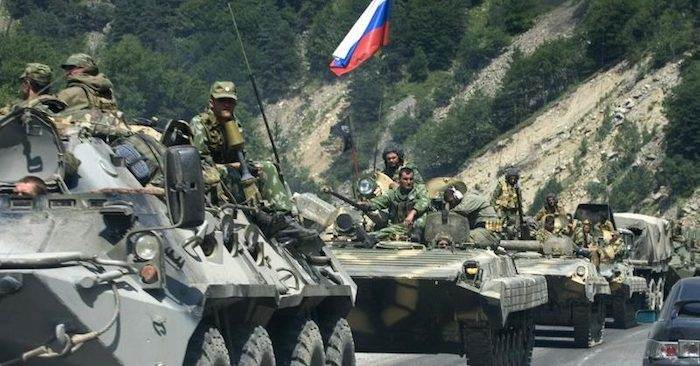Vladimir Putin has sent some troops to the border of Russia with North Korea, over fears that United States of America President Donald Trump is planning to attack Pyongyang. AnonNews has it:
“Following China’s reported deployment of 150,000 troops to its border with North Korea only days ago, it appears Russia is now following suit.
Thursday morning, footage surfaced that appears to show Russian tanks, helicopters, and troops being moved to the country’s tiny 11-mile border with North Korea by train.
“Railway trains loaded with military equipment moving towards Primorsky region via Khabarovsk have been noticed by locals,” reported a news outlet in Russia’s far East, as translated by the Daily Mail.
One video seems to show military helicopters and army combat trucks performing maneuvers near the Korean Peninsula, and the Daily Mail writes that other reports from the region are coming in claiming more Russian equipment is being moved to the border via roads.
Russian military veteran Stanislva Sinitsyn told the Daily Mail the equipment being moved includes “artillery systems that either support troops in assault or meet the aggressor.”
Speaking of his own country, and highlighting current tensions, Sinitsyn said:
“If the situation worsens, especially related to military events, the armed forces of all the neighboring countries obviously monitor it more closely, and we are no exception.”
On Wednesday, Russia went against a U.N. Security Council statement put forward by the United States that would have condemned North Korea’s missile tests. The reason given, according to diplomats who spoke to the Associated Press, was that Russia wanted language included in the statement that would emphasize a peaceful resolution to the situation through dialogue.
A Russian military spokesman declined to comment on exactly why the heavy military equipment was being moved to the border, but Russia’s deputy foreign minister, Sergei Ryabkov, summed up the situation pretty well following Wednesday’s vote at the U.N.
“Unfortunately,” he said, “we have to admit that the risk of a serious conflict in this region [has] substantially increased.””

